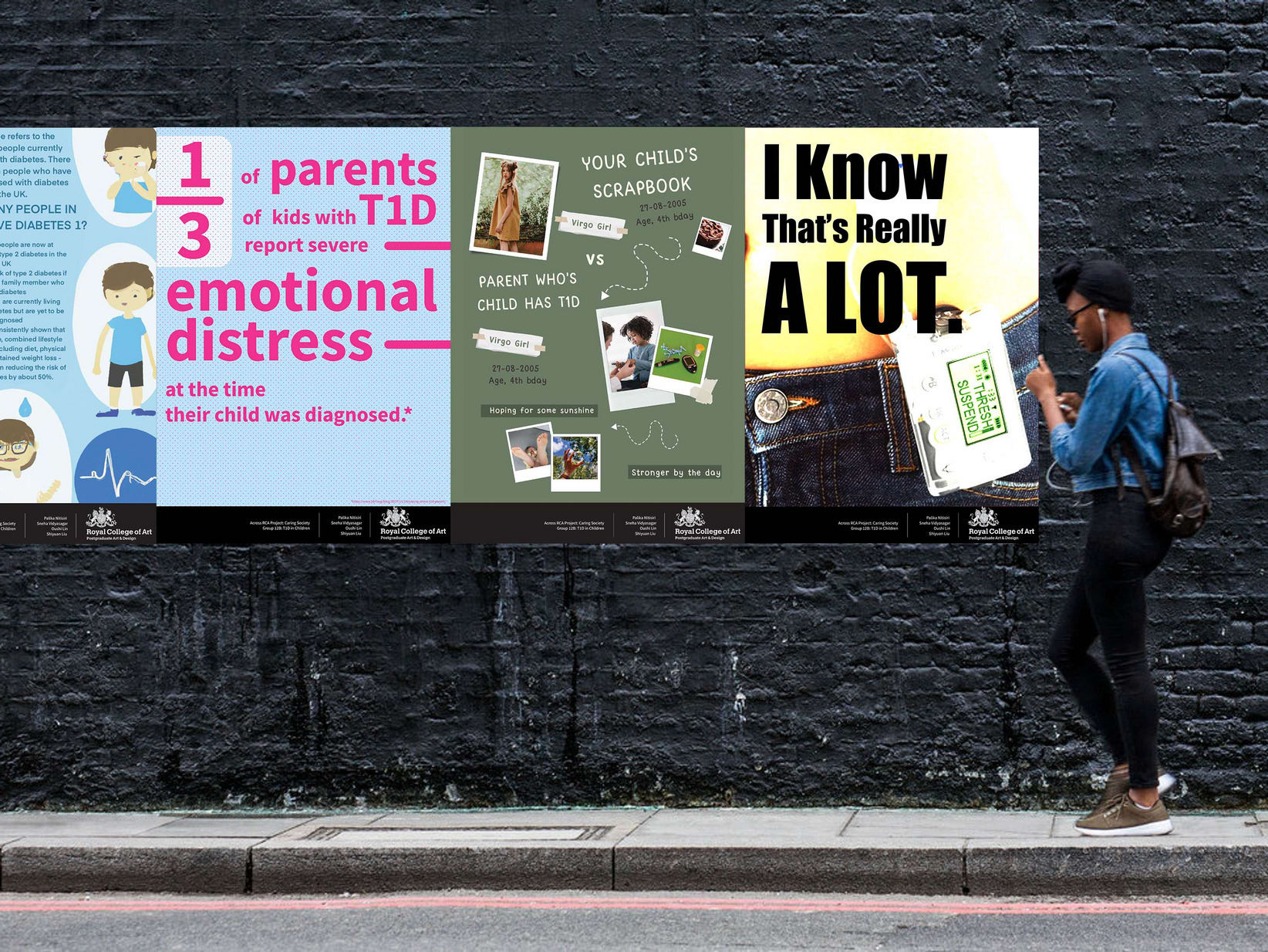The group's response to the chosen topic, families with children with diabetes, is a poster campaign supporting both parents and children in the families. The messages on the posters are based on our research and what we want to tell society, as one of the aims of the response is to raise awareness and give emotional support to the families.
The poster campaign aims to raise awareness about how common type 1 diabetes is in children and can evoke emotions such as empathy, concern, and compassion. By showcasing the issue and its impact on the families, a poster campaign can encourage viewers to understand and support those families more. Moreover, the poster campaign also promotes positive emotions such as happiness, love, and gratitude and can lift both children's and parents' moods and create a sense of well-being. Positive messages and images can inspire viewers to see the good in the world and appreciate their lives more. Although the campaign tries to bring positive aspects of life to people, another important factor is to avoid triggering any negative emotions. Some poster campaigns may intentionally or unintentionally trigger negative emotions such as fear, anger, or sadness. Overall, the poster campaign can be a powerful tool for evoking emotions and creating social change. However, it is important to consider the potential impact on the audience and ensure that the message is delivered responsibly and ethically.



